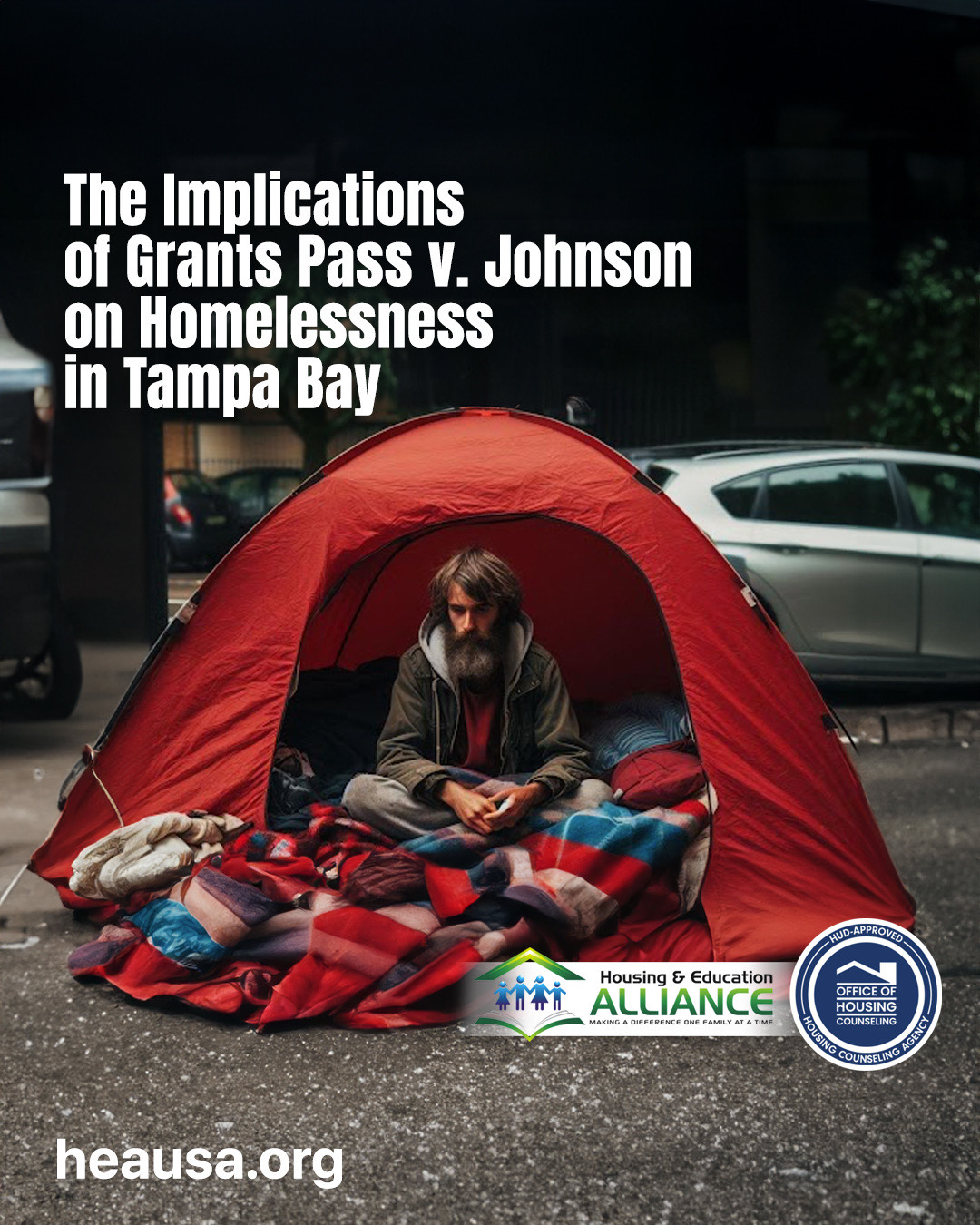
The Supreme Court’s upcoming decision in the case of Grants Pass v. Johnson is poised to have a significant impact on homelessness policies across the United States, including the Tampa Bay area. This landmark case, which is set to be heard on April 22, 2024, centers on the constitutionality of penalizing homeless individuals for sleeping in public spaces when no shelter is available.
Let me give you some context.
The city of Grants Pass, Oregon, has enforced regulations that require homeless residents to move from one park to another every 72 hours under threat of citations or jail time. This approach has been challenged as a violation of the Eighth Amendment, which prohibits cruel and unusual punishment. The case has escalated to the Supreme Court, where the central question is whether such city ordinances constitute cruel and unusual punishment against involuntarily homeless individuals.
What would a ruling in favor of the city mean?
Should the Supreme Court rule in favor of the city, it could set a precedent that allows municipalities to enforce similar punitive measures against the homeless population. Conversely, a ruling in favor of the homeless plaintiffs could affirm the protection of their rights and potentially lead to more humane and supportive approaches to homelessness.
Tampa Bay’s Homelessness Challenge
In Tampa Bay, like many other urban areas, homelessness remains a pressing issue. Florida has the third-highest number of homeless people in the country, with 27,487 individuals experiencing homelessness. The Supreme Court’s decision could influence local policies, particularly regarding the enforcement of laws that prohibit sleeping or camping in public areas, which were passed in Tampa in 2013.
Arresting Homeless People vs. Affordable Housing Funds
The debate over arresting homeless individuals versus allocating funds toward affordable housing is a contentious one. Critics argue that criminalization efforts do not address the root causes of homelessness and merely shift the problem without providing a long-term solution. Research suggests that providing supportive housing not only reduces homelessness but also decreases the number of arrests among the homeless population.
The outcome of Grants Pass v. Johnson will likely resonate beyond Oregon, affecting the lives of homeless individuals in Tampa Bay and across the nation. It raises fundamental questions about how society chooses to address homelessness: through criminalization or through the provision of affordable housing and supportive services. The decision will not only reflect the values of our legal system but also shape the future of homelessness policy and the lives of those it directly impacts.
If you feel strongly about this please consider attending the rally: https://johnsonvgrantspass.com/rally








